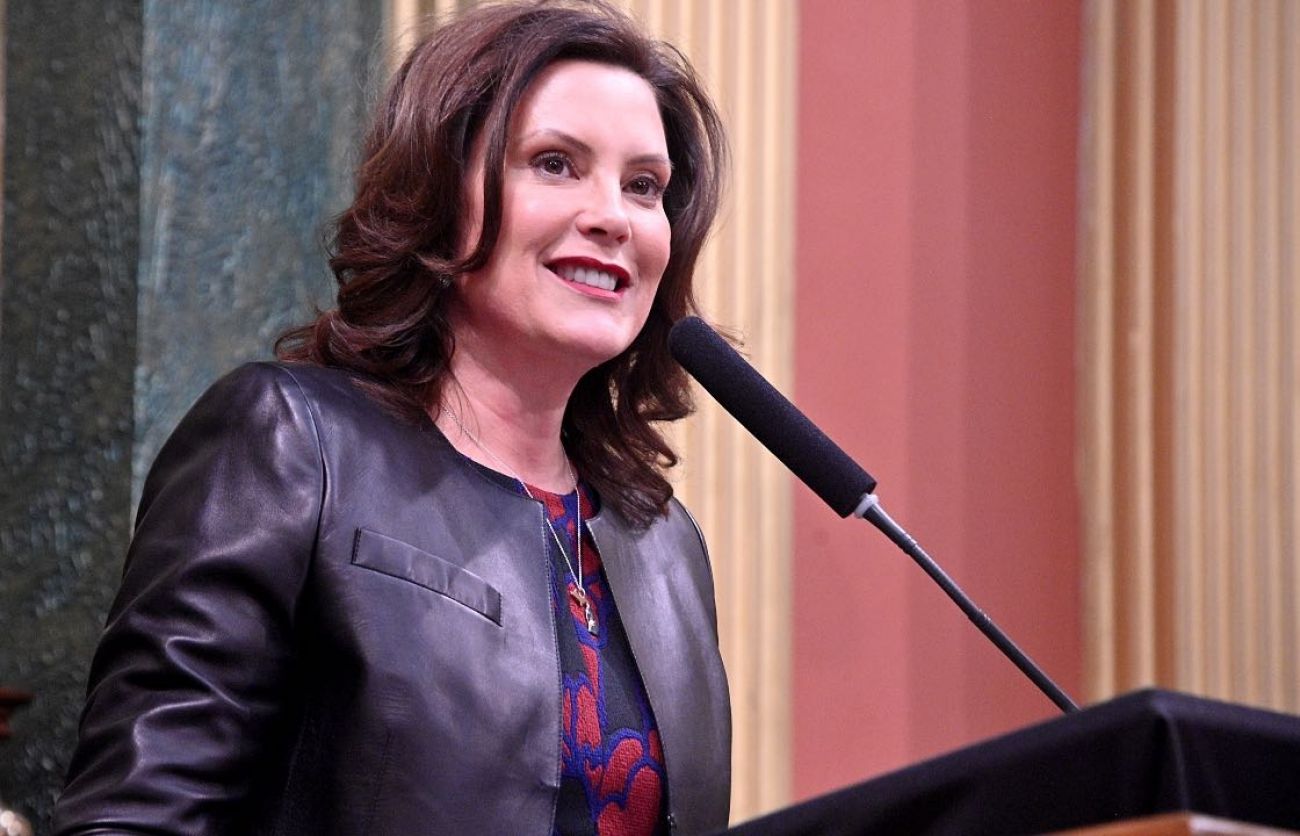Gov. Gretchen Whitmer pledges to make Michigan carbon-neutral by 2050

Michigan plans to become carbon neutral by 2050, Michigan Gov. Gretchen Whitmer announced Wednesday, making the state the ninth in the nation to set such a goal.
“The science is clear – climate change is directly impacting our public health, environment, our economy, and our families,” Whitmer said in a statement Wednesday.
“These bold actions will provide critical protections for our environment, economy, and public health, now and for years to come. It will also position Michigan to attract a new generation of clean energy and energy efficiency jobs.”
Whitmer signed an executive directive that outlines a goal of carbon neutrality within the next 30 years and a 28 percent reduction below 1990 levels in greenhouse gas emissions by 2025.
The move comes a day after the Chinese government announced that the nation — currently the world’s largest greenhouse gas emitter — would go carbon neutral by 2060. Some of Michigan’s largest utilities and manufacturers have made similar pledges, including DTE and Ford Motor Co. (carbon neutral by 2050) and Consumers Energy (2040).
It wasn’t immediately clear Wednesday how much Whitmer’s policy would force significant change, since she can’t order the state’s biggest polluters to become carbon neutral. But several groups cheered the decision and said Whitmer’s goal is necessary to meet the pressing needs of a state that is already being transformed by climate change.
“Michigan is home to too much fossil-fuel based infrastructure,” Margrethe Kearney, senior attorney at the Environmental Law & Policy Center, said in a statement. The order “makes clear that Michigan will be a leader in tackling climate change by unabashedly recognizing the impact greenhouse gas emissions have on our environment.”
Some business and industry groups, including the Michigan Chemistry Council, also applauded the move.
Whitmer’s order would require the Department of Environment, Great Lakes and Energy to put together a strategy to reach the goal across the state’s economy by the end of next year.
The Department of Technology, Management, and Budget must investigate energy efficiency opportunities when renovating state buildings, and by 2040 all new renovations and buildings must be carbon neutral while existing buildings will be required to reduce energy use by 40 percent.
The Treasury Department will be responsible for making a plan that identifies communities that will be impacted by any change in energy production — such as people who lose jobs or cities that lose tax revenue — and work to “minimize those impacts.”
Whitmer also signed an executive order forming a committee within EGLE that will be required to guide the department in forming and implementing the plans.
The administration’s guidance is in line with recommendations from the Intergovernmental Panel on Climate Change, which recommended in 2018 that the entire world reach carbon neutrality by 2050 in order to limit global warming to 1.5 degrees Celsius.
Michigan has a higher-than-average rate of asthma, which is three to four times worse in the most polluted ZIP Codes, and poor air quality also contributes to increased mortality in the state, health advocates from the Michigan branches of the Asthma and Allergy Foundation of America and MI Air MI Health said in a statement. Whitmer’s plan will help ease that problem, they said.
While Whitmer doesn’t have the power to force businesses to adopt carbon-neutral practices, the state can “lead by example” and spend money on clean energy, said Hugh McDiarmid, spokesperson for EGLE.
Over the next year, the state will put together a plan for policies to incentivize businesses to make changes, use clean energy and improve efficiency, he said.
Eric Pardini, a director at Lansing-based Public Sector Consultants who specializes in environmental policy, agreed that investing in efficiency is a proven way state governments can reduce their carbon footprints. For example, California Gov. Gavin Newsom announced Wednesday that the state won’t allow for the sale of fossil fuel vehicles by 2035.
But in the end, Whitmer’s reach will be limited by the Legislature’s interest in climate policy and that of future governors, Pardini said.
“I think more and more the recognition will come that this is going to happen with or without policy makers in the lead,” Pardini said, referencing the support from Michigan businesses like Steelcase. “So I question whether in two or four years whether it will be a viable political stance to not actually be active on climate.”
Whitmer’s action is likely to make a difference, said Kate Madigan, executive director of the Michigan Climate Action Network. She expressed optimism that subsequent governors won’t undo any plans that come from Whitmer’s orders.
“We’re seeing a shift where we have courageous leaders who are doing what science says is necessary,” she said. “The science is clear, the impacts are clear, we are now seeing how climate change is affecting our daily lives and it’s getting worse. So the public is demanding action and the political will is now responding.”
See what new members are saying about why they donated to Bridge Michigan:
- “In order for this information to be accurate and unbiased it must be underwritten by its readers, not by special interests.” - Larry S.
- “Not many other media sources report on the topics Bridge does.” - Susan B.
- “Your journalism is outstanding and rare these days.” - Mark S.
If you want to ensure the future of nonpartisan, nonprofit Michigan journalism, please become a member today. You, too, will be asked why you donated and maybe we'll feature your quote next time!




